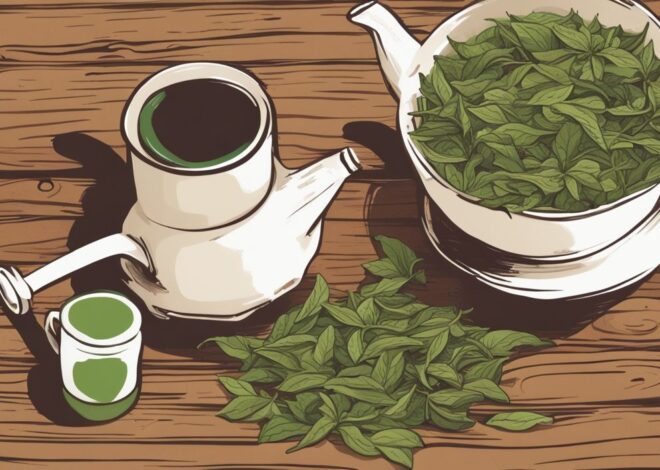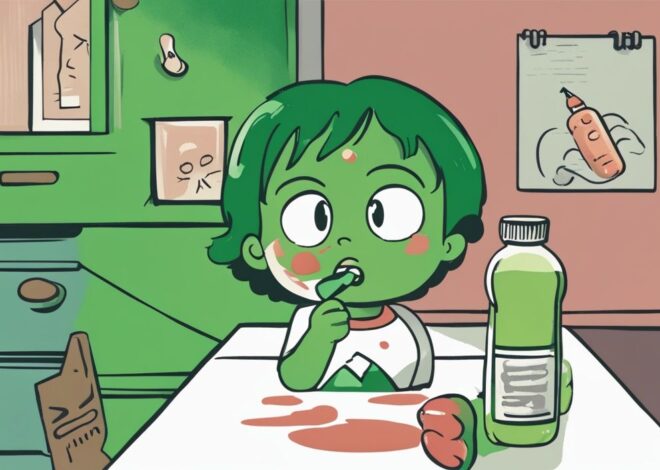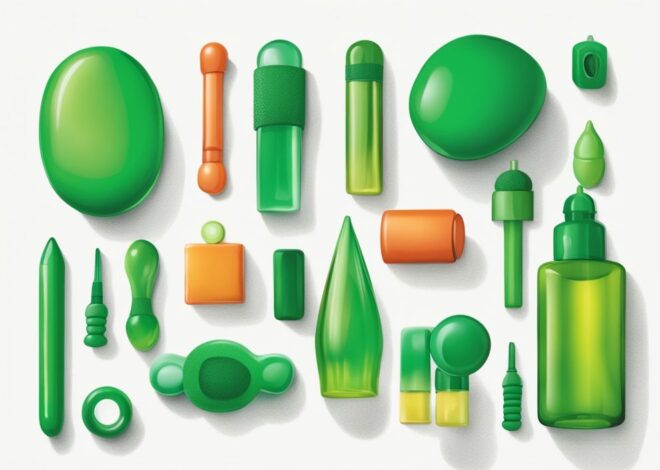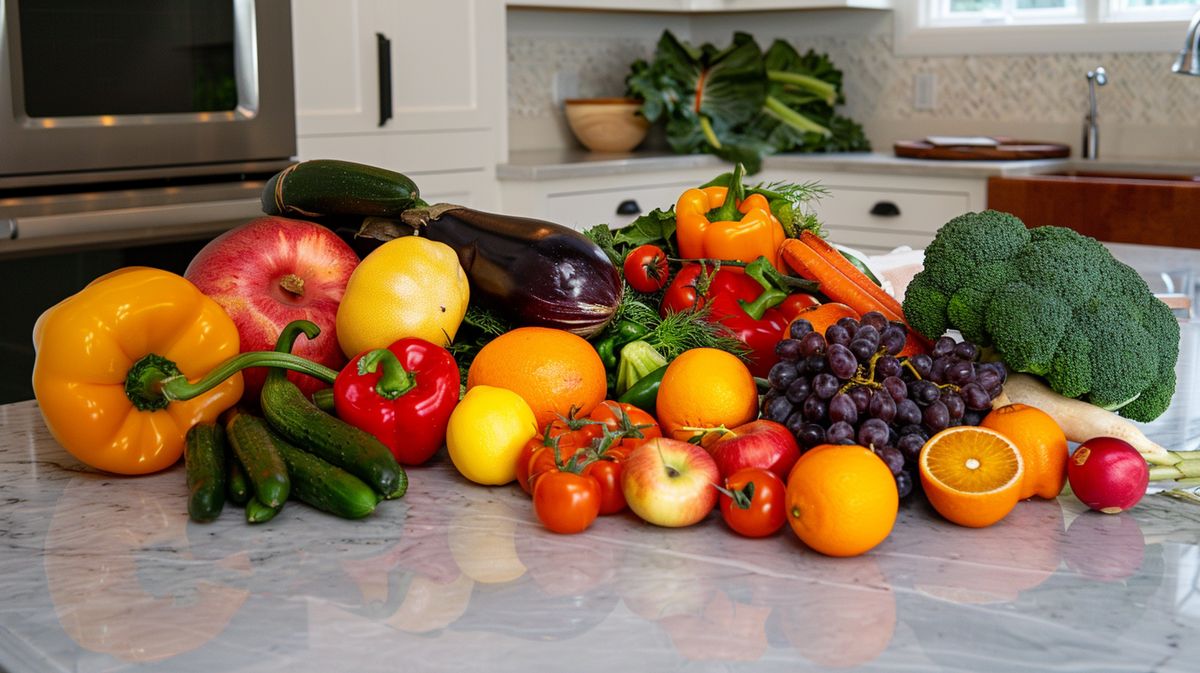
Discover Healthier Living with a Non Toxic Diet – Your Guide to Wellness
Ever pondered over the real cost of that scrumptious, convenient, pre-packaged meal? Well, my friend, brace yourself! Each mouthful might be subtly tainted with nasty chemicals, all snuggled up in your food. Enter the non toxic diet: our healthful, hearty rebuttal to these silent invaders.
We’re diving into a world where food is wholesome, natural, and seriously scrumptious. Where to start, you ask? Right here, honey-roasted beetroot! We’ll comb through food labels, sleuth around superfoods, and find the tastiest way to dodge those toxins.
Ready to make your plate a haven of health? Let’s embark on this culinary adventure together, nixing the noxious and saluting the savoury. Trust me, it’s flavor-packed, fun, and utterly life-altering!
Introduction to a Non Toxic Diet
What is a Non Toxic Diet?
Hey there! Ever wondered what a non toxic diet entails? Well, let’s dive into this delightful culinary journey! Imagine your plate filled with vibrant foods that are as close to their natural state as possible. This is what a non toxic diet champions. But there’s more to it, so let’s break it down:
- Natural and Whole Foods: Picture fresh apples picked straight from an orchard or hearty grains harvested from golden fields. A non toxic diet is all about these natural, whole foods – untainted by excessive processing.
- Pesticide-Free and GMO-Free: It’s like giving your body a detox daily. Opt for organically grown produce and say no to those sneaky GMOs and pesticides. Think of it as pampering your body with every bite!
- Minimally Processed Foods: Wave goodbye to nutrient-stripped, over-processed foods. Embrace minimally processed delights that retain their natural goodness and make your taste buds dance with joy.
- Avoidance of Harmful Substances: Imagine you’ve got a little superhero inside you fighting off evil additives, preservatives, and synthetic fertilizers! The less you consume these, the stronger your superhero becomes.
- Safe Food Packaging: Step into a world where food packaging plays nice. Choose options like glass containers over plastic ones, ensuring no pesky chemicals leach into your delicious meals.
- Variety of Nutrient-Dense Foods: Think of your plate as an artist’s palette. Load it up with a rainbow of nutrient-dense foods, making every meal a masterpiece of vitamins and minerals!
The Importance of a Non Toxic Diet
Alright, now that you know what a non toxic diet is, why should you even bother? Let’s explore the magical benefits that come with it:
- Improves Overall Health: A non toxic diet is like turning on your body’s turbo mode! Free of harmful chemicals, your body can function at its best, boosting your overall health in ways you can truly feel.
- Strengthens Immune System: It’s like giving your immune system a shiny set of armor. Clean, toxin-free foods make your immune defenses stronger and more effective.
- Better Physical and Mental Health: From the energy surge of a morning jog to the mental clarity during a brainstorming session, nutritious whole foods support every aspect of your health journey.
- Prevents Chronic Diseases: Dodge those chronic diseases like a pro! By reducing exposure to toxic chemicals, you lower the risk of conditions like cancer, diabetes, and heart disease.
- Promotes Gut Health: A happy gut equals a happy you! A non toxic diet fosters a healthy microbiome, aiding digestion and boosting overall well-being.
Understanding Toxic Chemicals in Food
Spoiler alert: Your food might be harboring some unwelcome guests! Yes, we’re talking about toxic chemicals—those hidden nasties that can sneak into your meals through packaging, processing, and even what should be “healthy” foods.
But don’t worry, we’re here to uncover the culprits and navigate your way to a non-toxic diet.
Common Toxic Chemicals in Food
Phthalates
Phthalates are like the party crashers of the chemical world! These pesky chemicals can be found in plastics, fragrances, inks, adhesives, and coatings. They invite themselves into your food through processing and packaging, giving even organic products a hard time. Studies show they can mess with your hormones, hamper neurodevelopment, and cause reproductive health issues. Yikes!
Pesticides
Pesticide residues are the unwelcome baggage that non-organic fruits and veggies often carry. These troublemakers can disrupt your hormones, increase cancer risks, and damage your digestive system, as discussed in detail by health experts on the impact of pesticides on health. Prenatal exposure? That’s a recipe for potential developmental concerns in children, including ADHD and learning disabilities. Talk about a tough crowd!
BPA and Other Packaging Contaminants
Meet BPA and its notorious gang of packaging contaminants. Bisphenol A (BPA) loves to lurk in the linings of cans and plastic containers. It’s been linked to behavioral problems in children and chronic diseases like heart disease. And don’t be fooled by so-called alternatives—many of them pose similar health risks. These packaging pollutants sure know how to cause trouble!
Preservatives and Artificial Additives
Preservatives and artificial additives are the sprinkles on the cupcake of processed foods—except they’re anything but sweet! From enhancing shelf life to adding flavor and color, these substances are linked to serious health issues: cancer, hyperactivity in children, and digestive problems. They’re lurking everywhere in processed and junk food, thwarting your noble quest for a non-toxic diet.
Health Risks Associated with Toxic Chemicals in Food
Hormone Disruption
Hormone disruptors are like unruly guests at a dinner party—completely throwing things off balance. Chemicals such as phthalates and pesticides can wreak havoc on the endocrine system, leading to early puberty, reproductive deformities, and metabolic issues. A non-toxic diet helps keep these disruptors at bay by focusing on cleaner, safer food options.
Neurodevelopmental Problems
Prenatal exposure to certain chemicals, like those found in pesticides and BPA, is no joke for developing brains. These toxins can cause everything from language delays to ADHD and lower IQ. Kids’ neurological systems are like delicate ecosystems, making them particularly vulnerable to these harmful substances.
Reproductive Health Issues
The chemicals at play here are no friends of reproductive health. Think infertility, genital malformations in boys, and reduced testosterone production. These factors disrupt hormonal balance, leading to long-term reproductive issues. Embracing a non-toxic diet is like giving your body a VIP pass to better health by reducing exposure to these chemicals.
Cancer and Chronic Diseases
Some toxic chemicals in food are notorious for raising the risk of various cancers and chronic diseases, including diabetes and heart disease.
Invalid YouTube video ID
The aim of a non-toxic diet is to cut those risks dramatically by focusing on foods free of harmful substances, ensuring a cleaner dietary intake. It’s like giving your body a fresh start!
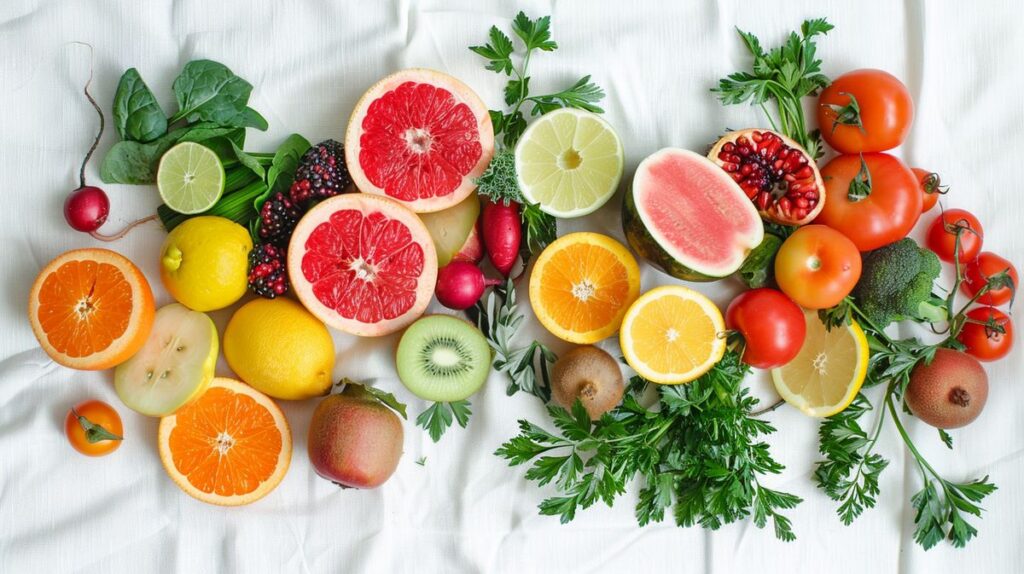
How to Minimize Exposure to Toxic Chemicals
If you’re determined to live a cleaner, greener life, you’re in the right place! Join me in this whimsical adventure as we unveil the magical ways to embrace a non-toxic diet. We’ll cover everything from choosing the purest organic foods to mastering safe cooking techniques, ensuring your journey towards health and well-being is as delightful as it is informative.
Choosing Organic Foods
A non-toxic diet begins with a pledge to go organic. Imagine your fruits and veggies donning superhero capes, fighting off synthetic pesticides and fertilizers. By consulting the “Dirty Dozen” list, you’ll know which produce harbors the most dastardly villains (those pesky pesticide residues). Opting for these organic champions can dramatically slash your intake of nasty chemicals and elevate your overall health.
Opting for Safe Food Packaging
Ensuring a non-toxic diet means banishing those sneaky contaminants lurking in your food packaging. Picture this: your leftovers tucked safely into glass, stainless steel, or ceramic containers, free from the evil clutches of plastic. Additionally, beware the treacherous canned goods, often brimming with BPA and other sinister substances. By making these mindful choices, you’ll keep harmful packaging toxins at bay.
Healthy Cooking Practices
Cooking is an art, and in a non-toxic diet, it’s also a science! Overcooking or charring ingredients can summon nefarious toxins. Instead, let’s get creative with steaming, grilling, baking, and boiling – cooking methods that preserve the vibrant essence and nutritional glory of your food. Think of it as a joyful culinary dance that minimizes the formation of those undesirable compounds.
Reducing Processed Food Intake
Processed foods are veritable minefields of harmful additives and preservatives. Yikes! To adhere to a non-toxic diet, let’s embark on a quest to focus on whole, minimally processed foods. This delicious adventure not only reduces toxin intake but also boosts your health, staying true to the heart of a non-toxic lifestyle. Embrace natural goodness and wave goodbye to those sneaky additives!
Beneficial Nutrients in a Non Toxic Diet
Ah, the delightful universe of non-toxic eating! Let’s dive into the enchanting realm of key nutrients that make your non-toxic diet not just healthy, but a magical experience for your body and soul. Ready? Off we go!
Antioxidants
Antioxidants are the charming knights in shining armor of a non-toxic diet, bolstering your immune system and shielding you from illnesses. These powerful heroes neutralize those pesky free radicals, preventing cellular damage and chronic diseases. So, loading up on foods rich in antioxidants is non-negotiable for keeping health maladies at bay.
Sources of Antioxidants:
- Dark Chocolate: This velvety delight, endowed with rich flavonoids, not only satiates your sweet tooth but also showers you with potent antioxidant benefits.
- Blueberries: These tiny, tangy titans are brimming with vitamins C and K, and packed with anthocyanins, making them antioxidant superstars.
- Raspberries: Bursting with dietary fiber, vitamins, and antioxidants, these berries wage a fierce battle against inflammation and oxidative stress.
- Sun-Dried Tomatoes: These wrinkled wonders are a treasure trove of lycopene, an antioxidant that champions heart health and lowers cancer risk.
Healthy Fats
Healthy fats are the smooth operators in a non-toxic diet. Essential for brain function, cell growth, and overall health, these fats, particularly monounsaturated and polyunsaturated, work wonders at reducing inflammation and keeping your heart happy.
Sources of Healthy Fats:
- Olive Oil: Liquid gold, rich in monounsaturated fats and antioxidants, it’s your ticket to a heart-friendly non-toxic diet and an anti-inflammatory hero.
- Avocados: Creamy and dreamy, avocados are packed with healthy fats, fiber, and vital nutrients that boost cardiovascular health and provide sustained energy.
- Chia Seeds: Tiny yet mighty, these seeds are high in omega-3 fatty acids, crucial for brain health and inflammation reduction.
- Salmon: This succulent fish is a top-tier source of omega-3 fatty acids and protein, supporting brain function and guarding against chronic diseases.
High-Fiber Foods
High-fiber foods, the unsung heroes of a non-toxic diet, play a pivotal role in ensuring smooth digestion and banishing those unwelcome cancer-causing compounds. By nurturing a happy gut flora, fiber-rich foods not only improve gastrointestinal health but also supercharge nutrient absorption.
Sources of High-Fiber Foods:
- Lentils: These humble legumes are laden with both soluble and insoluble fiber, helping to regulate blood sugar levels and boost digestive health.
- Blackberries: These luscious berries are a powerhouse of vitamins, minerals, and fiber, making them stellar for digestion and disease prevention.
- Almonds: Crunchy and satisfying, almonds are rich in fiber, healthy fats, and protein, supporting weight management and healthy digestion.
Phytonutrients
Phytonutrients are the dazzling stars in the world of non-toxic foods. Found in a rainbow of fruits and vegetables, these nutrients work synergistically to combat oxidative stress and environmental toxins. They fuel detox processes and shield cellular health, making them indispensable.
Sources of Phytonutrients:
- Broccoli: This green gem is brimming with sulforaphane, a compound that helps detoxify those pesky harmful substances in your body.
- Kale: This leafy superhero is chock-full of vitamins and phytonutrients, safeguarding you against oxidative damage and inflammation.
- Brussels Sprouts: Packed with glucosinolates, these mini cabbages activate detoxification enzymes in your liver, working like a charm.

Practical Tips for a Non Toxic Diet
Diving into the realm of a non toxic diet can be an exciting adventure where health bubbles over like a pot of perfectly simmered soup. Here’s a treasure trove of playful tips to keep your meals clean and your conscience cleaner!
Buy Organic Produce
Picture this: your produce waltzing down the orchard, blissfully free of synthetic chemicals. When you opt for organic ingredients, you’re saying ‘au revoir’ to nasty insecticides, herbicides, and fertilizers. So, next time you’re hunting for apples, make sure that organic certification badge is shining bright like a beacon of health!
Avoid Canned Foods and Processed Products
Canned foods are like those mischievous pranksters always hiding surprises—like Bisphenol A (BPA) that loves gatecrashing your meals. When it comes to processed products, think of them as the sneaky culprits stuffing in additives and preservatives. But fret not! Fresh or dried foods are the delightful knights in shining armor. Dried beans over canned ones? Now that’s a switcheroo your health will applaud!
Drink Clean, Filtered Water
Imagine enjoying a glass of crystal-clear water that’s purer than the morning dew. Investing in a top-notch water filter means kicking chlorine, lead, and other pesky contaminants to the curb. Cheers to a hydrated and toxin-free life!
Store Food in Non-Toxic Containers
Did you know that plastic containers have a sneaky sidekick? That’s right, they can leach harmful chemicals into your food. Yikes! Switch to glass, stainless steel, or ceramic containers—they’re the superheroes of the storage world. And remember, plastic lids in microwaves? That’s a no-go! Heat + plastic = chemical catastrophe.
Avoid Artificial Sweeteners and Colorants
Artificial sweeteners and colorants are the ultimate party crashers, linked to various health issues. Keep them off the guest list by scrutinizing product labels like an eagle-eyed detective. Swap in natural sweeteners like honey or maple syrup, and let nature’s own colors do the dazzling!
Detoxifying Your Body with a Non Toxic Diet
Ready to give your body a spring clean? With my whimsical tips and a pinch of playful humor, I’ll show you how to detoxify your system using a non-toxic diet! Let’s embark on this feel-good journey together.
The Role of Foods in Detoxification
Incorporating certain foods into your non toxic diet can significantly boost your body’s detoxification processes. Foods like garlic and cruciferous vegetables—think broccoli, kale, and Brussels sprouts—are like tiny superheroes for your liver. They help activate detoxification enzymes, which are vital in breaking down and removing toxins from your body.
But wait, there’s more! Phytonutrients, those naturally occurring compounds in plants, offer protective benefits for your cells. This ensures that they can efficiently support the body’s detoxification pathways. Picture these phytonutrients as the diligent gardeners of your inner sanctuary, always at work to keep things squeaky clean.
Exercise and Hydration
Regular exercise is a vital component of a non toxic diet as it helps your body eliminate toxins through sweat. Activities such as jogging, yoga, and cardio workouts are excellent for enhancing blood circulation. This aids in transporting toxins to excretory organs for removal.
Equally important is staying well-hydrated. Water is your detox’s best friend—it ensures the flushing out of toxins through urine and sweat. So grab that fun water bottle and aim to drink at least eight glasses of filtered water daily to keep your detox systems running smoothly. Just imagine water as the gentle river that carries all the unwanted guests out of your body!
Using Non-Toxic Personal Care and Cleaning Products
To support a non toxic diet, it’s essential to minimize your exposure to synthetic chemicals not only in food but also in personal care and cleaning products. Opt for natural alternatives like organic skin care products and eco-friendly cleaning solutions. Consider this: the skin, being the body’s largest organ, can absorb chemicals directly into the bloodstream. Yikes, right? Making non-toxic choices is crucial for overall health.
Switching to non-toxic products reduces the body’s toxic load. Learn more about starting a non toxic lifestyle today. This complements your dietary efforts to maintain a healthier lifestyle. Think of it as giving your body a break from playing defense—it allows your system to focus on running smoothly, like a well-oiled machine. What’s not to love?
Case Studies and Evidence
What exactly is the magic behind a non toxic diet? Let’s dive into some intriguing case studies and evidence, all wrapped up in a bit of whimsy.
Research on Benefits of a Non Toxic Diet
Picture this: a life where the risk of chronic diseases takes a nosedive. Studies exploring the impact of a non toxic diet are like golden tickets to this healthier realm. The Journal of Environmental Health, for example, didn’t just dabble—they discovered a significant reduction in heart disease, diabetes, and even various forms of cancer among those committed to a non toxic lifestyle. The secret sauce? The decreased ingestion of nasties like pesticides and preservatives, those sneaky culprits lurking in non-organic and highly processed foods.
Then swoops in the American Journal of Clinical Nutrition with a revelation: organic foods, the bread and butter of a non toxic diet, are health superheroes. This comprehensive study piggybacks on the notion that organic foods shun pesticide residues, which can wreak havoc over time. Participants basking in the glow of a non toxic diet showed off boosted antioxidant levels and slashed marks of oxidative stress. Translation? Their cells were essentially donning shields against environmental villains.
Personal Stories of Health Improvements
Now, let’s switch gears to something even more delightful—personal stories. Imagine Sarah, once plagued by non-stop bloating and digestive drama. The day she embraced a non toxic diet, focusing on organic and minimally processed foods, her digestive woes threw in the towel. No more bloating, no more irregularity, just smooth sailing from then on.
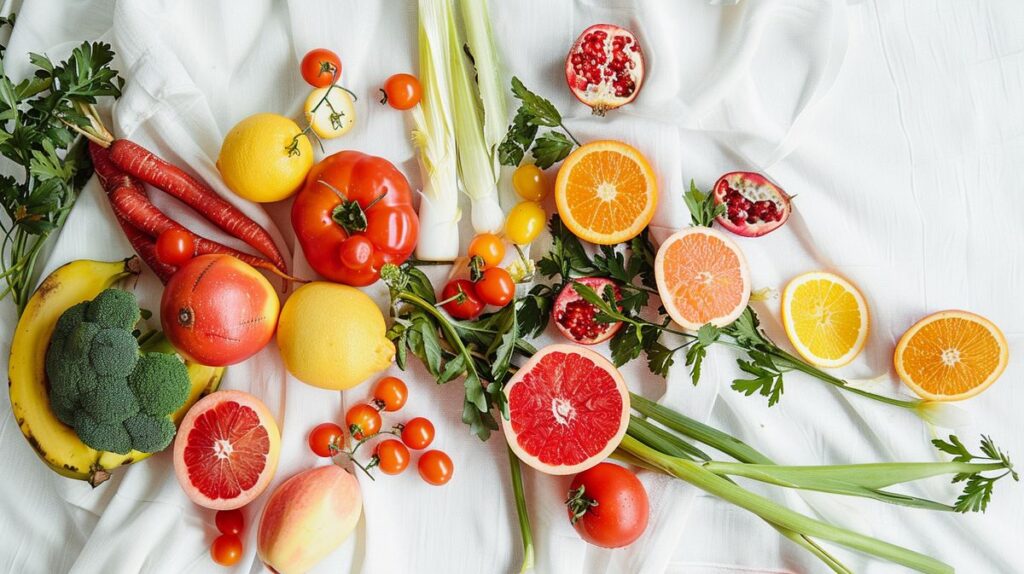
Energy levels went through the roof for many of these diet adventurers. Think of Jessica, who traded in chronic fatigue for newfound vigor simply by ousting synthetic chemicals and preservatives from her plate. These pesky additives were notorious for disrupting normal metabolic processes, leaving her perpetually pooped. Then, voila! Her energy bounced back like a spring-loaded jack-in-the-box.
What’s even more enchanting? Clearer skin. Take Paul, whose face was a battlefield for acne. Post-switch to a non toxic diet bursting with antioxidants and phytonutrients, his complexion became as smooth as a polished gemstone. This dietary shift lightened the toxin load on his liver and skin, the body’s unsung detox heroes.
These personal sagas, paired with rock-solid research, make it crystal clear: a non toxic diet is not just a trend. It’s a life-enhancing elixir, a key player in the quest for optimal health.
Expert Opinions on Non-Toxic Diets
Insights from Dieticians and Healthcare Providers
Leading dieticians and healthcare providers underscore the profound benefits of a non-toxic diet. By prioritizing natural and minimally processed foods, individuals can significantly reduce their exposure to harmful chemicals, consequently enhancing their overall health. Experts also stress the importance of a well-rounded, nutrient-dense diet, which serves as a foundation for robust physical and mental well-being.
Healthcare professionals advocate for the consumption of organic produce to lower the intake of synthetic pesticides and fertilizers. They highlight the critical role of antioxidants, healthy fats, high-fiber foods, and phytonutrients in supporting the body’s natural detoxification processes and promoting longevity.
Recommended Dietary Practices
Experts strongly recommend incorporating a variety of whole foods into daily meals, which not only ensures a broad spectrum of essential nutrients but also minimizes the consumption of processed foods and their harmful additives. Emphasizing the significance of eating organic, seasonal, and local produce, professionals encourage individuals to be mindful of food quality and sourcing.
To further reduce toxin exposure, healthcare providers advise avoiding foods in plastic packaging, especially those containing BPA or other plasticizers known to leach chemicals into food. They also recommend safe cooking practices, such as steaming and baking, to prevent the formation of harmful substances during food preparation.
By embracing these dietary practices and prioritizing safety in food choices, individuals can take actionable steps towards a healthier, more balanced lifestyle, rooted in the principles of a non-toxic diet.
Conclusion
Oh, the wonders of a non-toxic diet! 🌿 Embracing this lifestyle can do wonders for your overall health and well-being. Picture this: you focus on natural, whole, pesticide-free, GMO-free, and minimally processed foods, and voilà, you’re reducing your exposure to icky substances like synthetic chemicals, fertilizers, additives, and preservatives. It’s like waving a magical wand for better physical and mental health, a boosted immune system, and even preventing those pesky chronic diseases like cancer, diabetes, and heart disease. ✨
But wait, there’s more! Incorporating organic produce, opting for safe food packaging, and choosing minimally processed foods are the secret ingredients of a non-toxic diet. These simple swaps can improve gut health, reduce hormone disruption, and lower the risk of neurodevelopmental and reproductive health issues. Imagine your insides doing a happy dance! 💃🕺
Understanding those nasty toxic chemicals that sneak into our food and their associated health risks is like having a superpower for making informed dietary choices. By dodging phthalates, pesticides, BPA, and artificial additives, you’re not just safeguarding your health but also that of your loved ones. It’s a win-win! 🛡️
Let’s talk strategy! Adopting healthy cooking practices, cutting down on processed food intake, and staying properly hydrated are vital for maintaining a non-toxic diet. Throw in some exercise and non-toxic personal care and cleaning products, and you’ve got yourself a holistic approach to reducing toxin exposure. It’s like building a fortress against toxins! 🏰
So, what’s the takeaway? Making informed dietary choices centered around a non-toxic diet is absolutely essential for your health. Not only are you cutting down on harmful substances, but you’re also flooding your body with essential nutrients. Prioritizing safer, more natural food options will lead to lasting health benefits, empowering you to live a healthier, more vibrant life. 🚀
Let’s raise our (non-toxic) glasses to a life filled with vitality and wellness! 🥂
FAQ: Unlock the Secrets of a Non-Toxic Diet
What are the main foods to avoid in a non toxic diet?
Oh, the list of villains we must dodge! Avoid foods that are practically bathed in pesticides, look out for those sneaky canned foods, and beware of the processed products carrying artificial additives like a parade of harmful chemicals. Instead, invite fresh, organic items to your plate. They are the superheroes of your diet, working tirelessly to minimize your exposure to those dastardly toxins.
How do I know if a product is truly organic?
Ah, the quest for true organic products—it’s like finding hidden treasure! Look for labels that start with the number 9 and certified organic seals that twinkle like stars. Seek certifications from reputable organizations, your trusty map leading you to authenticity. These markers are your guiding light in the labyrinth of grocery aisles.
Can a non toxic diet help in preventing chronic diseases?
Indeed, my dear health adventurer, a non-toxic diet can be your magical shield in the battle against chronic diseases. By minimizing your exposure to harmful substances, you fortify your body’s defenses. This diet is like a knight in shining armor, supporting better health and aiding in the prevention of those persistent foes.
Is it necessary to buy all organic products?
Fear not, for it isn’t an all-or-nothing game. Prioritize organic options for high-residue produce and foods that are often under siege by toxins. This clever strategy helps you significantly reduce your intake of synthetic chemicals without having to splurge on every single item.
What are some affordable alternatives to canned beans?
The mighty dried beans to the rescue! These legumes are not only cost-effective but also less prone to exposure to BPA and other contaminants. Soak them in advance or cook them up in large batches to freeze for later. Your pantry (and your wallet) will thank you.
